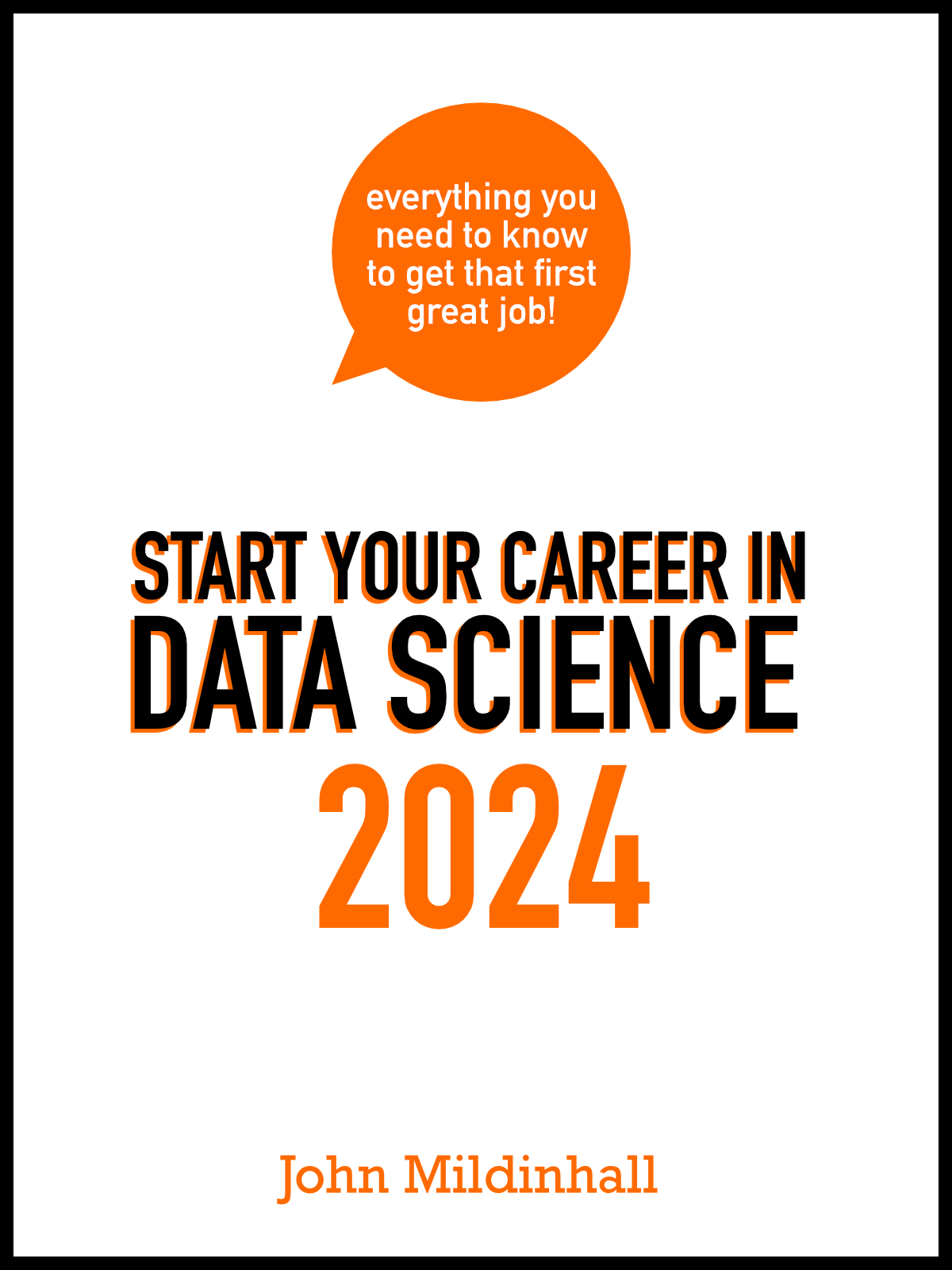Hello. I’m John. I’ve been fascinated with computers since I first saw them when I was nine or ten. This fascination has continued through a career in science, and then data science - I’ve spent a good 20 years now working with data and building algorithms in one form or another. For three years I have been Head of Data Science for Retail at Marks and Spencer - a FTSE100 company. I’ve been thinking for a little while that it was about time to take stock of what I’ve learned, and present it to people who might be considering doing the same.
So I’ve written a book! It’s called START YOUR CAREER IN DATA SCIENCE: 2024, and it’s available on Kindle here.
It would be a shame to write a book and have no-one read it, so this SubStack is the way I’m going to let the world know what it is and why they might find it useful. On the way I’m going to try to add additional useful information that might not have made the draft, and also hope to get some good feedback from readers.
The book is for the following people:
Students, particularly science students, or social science students with a heavy mathematical slant.
Those still in secondary education who are considering their career options and planning for university.
Mathematical people who have already started their career and are interested in switching to data science.
In the interests of providing some snappy and #engaging #content (groan), I am going to start with a standard listicle:
Top 5 misconceptions about data science
You need a Ph.D. Sure, you will meet a lot of people with Ph.Ds in your data science career, but there are amazing data scientists without Ph.Ds. These people have had the curiosity, application and dedication to become excellent in their field without being fully-fledged academics first. In the book I talk more about this route.
You need to have built cutting-edge neural networks to have a chance. Believe it or not, a lot of the most valuable data science is a combination of statistical methods that have been around for over a hundred years, and robust software development practices. There is a lot of value in the expression “KISS: Keep It Simple Stupid”.
You need a qualification in Data Science itself. Sure, there are both undergraduate degrees and masters degrees in data science and some of the graduates of these go on to become very successful data scientists. These qualifications prepare people somewhat, but they are not a replacement for being highly curious, a self-starter, and a good collaborator. Start Your Career in Data Science: 2024 goes into these attributes in detail.
You need to work for a big tech company. Yes these companies are great on the CV and can be good places to work, but they are a tiny proportion of the companies that need data scientists. Culture is important, but so is having a decent chance of working on something significant. Large companies with fledgling data science teams can be a great place to work on big things, sooner in your career.
Coding as a career is going away. With the advent of AI tools, some expect coding to become less of a skilled occupation. Our experience is the opposite: It makes excellent coders even more productive, but often AI does not stop mediocre coders making errors. With bad coders, AI simply makes them more dangerous! Coding, and particularly data science, still requires extensive experience, adherence to best practices and collaboration, and AI is not going to change that in the near or even mid term.
Start Your Career in Data Science: 2024 is a broad overview of what it takes to begin a career in data science right now, and will help you from planning, through to developing your skills, through to acing that interview.


